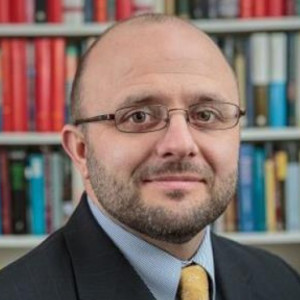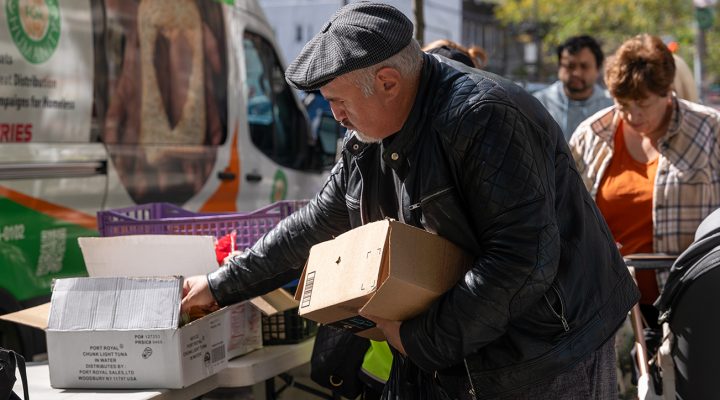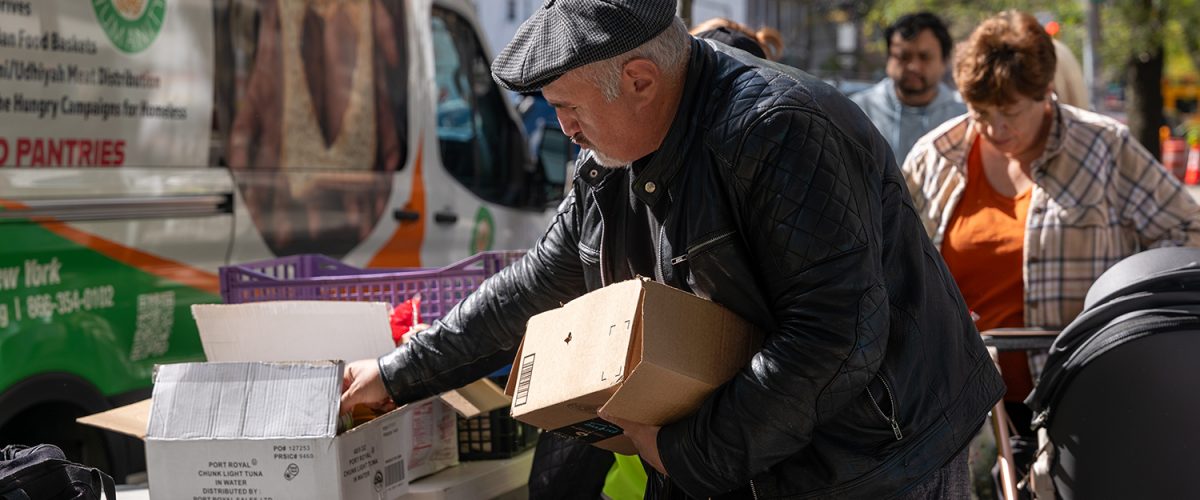While the U.S. government must act decisively to counter poverty rates that are increasing as pandemic-era assistance programs end, people of faith also have a responsibility to counter food insecurity, hunger expert Jeremy Everett said.

Jeremy Everett
“As people of faith who confess Jesus as Lord, it is imperative on us — it is core to discipleship — that we are addressing hunger and poverty in our communities and in a systemic and structural way. It’s hard to love your neighbor who is hungry if you are not doing anything about it,” said Everett, executive director of the Baylor University Collaborative on Hunger and Poverty.
But the federal component will be critical to addressing the U.S. Census Bureau’s latest income and poverty statistics, he said.
According to the September report, the U.S. poverty rate spiked 4.6 percentage points to 12.4% in 2022. The poverty rate for children more than doubled from 5.2% in 2021 to 12.4% last year.
“This increase can be attributed to key changes in federal tax policy, including the expiration of temporary expansions to the Child Tax Credit and the Earned Income Tax Credit as well as the end of pandemic-era stimulus payments,” the Census Bureau said.
The bureau reported a 2.3% decrease in median household income from 2021 to 2022, a period that also saw inflation surge to 7.8%, representing the largest annual cost-of-living increase since 1981.

Jason Coker
But none of the newly released data is surprising, said Jason Coker, president of Together for Hope, a rural development coalition that fights poverty and food insecurity in more than 300 of the nation’s poorest counties.
“When COVID hit, the government waged a massive intervention and they refused to let people go hungry. They almost eliminated childhood poverty,” Coker said.
Expansion of the child and earned-income tax credits, in addition to stimulus payments and a moratorium on removing people from Medicaid accounted for lowering the poverty rate to new lows, including to around 5% for children during the pandemic, Coker said. “But as those protections have been rolled back, we have gotten back to where we were before COVID, and it’s even worse in a post-COVID world with less employment and higher inflation. And people in some conservative states were not notified that they needed to renew Medicaid, so many did not reapply.”
For its part, Together for Hope is currently engaged in affordable housing initiatives and programs to feed and educate children. It also is pressing lawmakers to expand Medicaid, Coker said. “All the data shows that the federal government can make a dramatic difference when they adopt policies that protect the most vulnerable.”
But prodding the federal government to take decisive action usually hinges on the willingness of lawmakers to work across party lines, Everett said. “When Congress is divided over culture wars, it impacts Congress’ ability to pass legislation, which invariably has a direct effect on food insecurity rates. When members of Congress are able come together on bipartisan initiatives, then we typically see a decline in food insecurity.”
Without that support, the burden of addressing rising poverty and food insecurity falls on states, churches and other nonprofit groups, he said. “It puts more pressure on food banks and food pantries, and on state agencies to sign people up for programs like SNAP (Supplemental Nutrition Assistance Programs), and on schools, which are not adequately funded or staffed.”
“If we work together across sectors and party lines, we do have the capability to end poverty in America.”
Business, religious and nonprofit leaders attended a 2022 White House summit where President Joe Biden announced a goal of ending hunger by 2030. Rising poverty rates don’t make reaching that goal any easier, said Everett, who attended the meeting. “Anything we do to impact wage rates or income, including cash-based assistance or SNAP or strengthening feeding programs, will have a positive impact on food insecurity rates. Anytime we come to an impasse, the effect will be negative.”
The Baylor collaborative has been working for years to address the child hunger component through its Meals-to-You program, which delivers meals and snacks to children in rural and remote areas during summer months. Everett said the program has been passed to the federal government for nationwide implementation.
But no one organization or sector can end hunger and poverty, he said. “If we work together across sectors and party lines, we do have the capability to end poverty in America. But when we refuse to find compromise or when we overvalue one sector over another — business or government or faith communities or nonprofits —and don’t collaborate across party lines, that has an adverse effect on families living in poverty.”
Everett also urged Christians to stay in the game when it comes to ministering to the hungry. “Debates on how to do it are healthy, but there is no debate on whether or not we are called to do our best to love our neighbors as ourselves, and that means making sure they have food to eat and that their paychecks go as far as ours do.”


